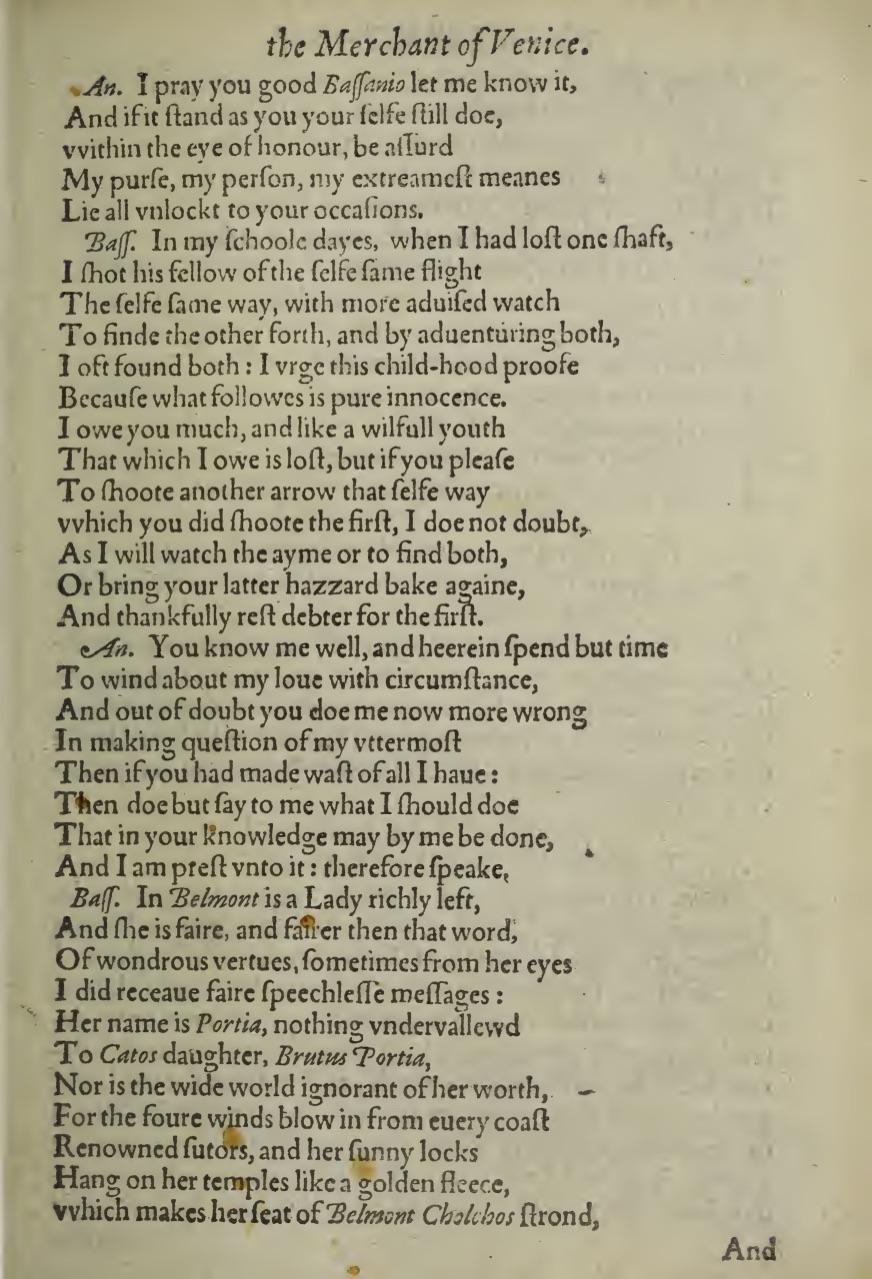the Merchant of Venice
Antonio: I pray you good Bassanio let me know it,
And if it stand as you your self still do,
within the eye of honor, be assured
My purse, my person, my extremist means
Lie all unlocked to your occasions.
Bassanio: In my school days, when I had lost one shaft,
I shot his fellow of the self same flight
The self same way, with more advised watch
To find the other forth, and by adventuring both,
I oft found both: I urge this childhood proof
Because what follows is pure innocence.
I owe you much, and like a willful youth
That which I owe is lost, but if you please
To shoot another arrow that self way
which you did shoot the first, I doe not doubt,
As I will watch the aim or to find both,
Or bring your latter hazard bake again,
And thankfully rest debtor for the first.
Antonio: You know me well , and herein spend but time
To wind about my love with circumstance,
And out of doubt you do me now more wrong
In making question of my uttermost
Then if you had made me waste of all I have:
Than do but say to me what I should do
That in your knowledge may by me be done,
And I am pressed unto it: therefore speak.
Bassanio: In Belmont is a Lady richly left,
And she is fair, and fairer then that word,
Of wondrous virtues, sometimes from her eyes
I did receive fair speechless messages:
Her name is Portia, nothing undervalued
To Cato's daughter, Brutus' Portia,
Nor is the wide world ignorant of her worth,
For the four winds blow in from every coast
Renowned suitors, and her sunny locks
Hang on her temples like a golden fleece,
which makes her seat of Belmont Cholchos' strand,
